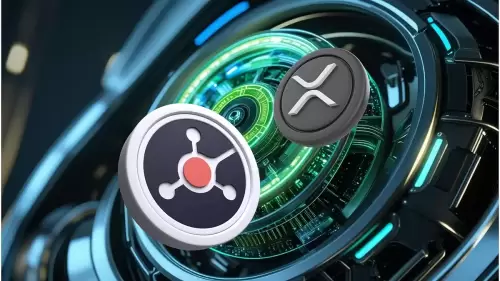 |
|
 |
|
 |
|
 |
|
 |
|
 |
|
 |
|
 |
|
 |
|
 |
|
 |
|
 |
|
 |
|
 |
|
 |
|
The year 2025 marks a pivotal phase in the maturation of gig-incentive infrastructure for Initial DEX Offerings (IDOs)

The year 2025 marks a pivotal phase in the maturation of gig-incentive infrastructure for Initial DEX Offerings (IDOs), as decentralized finance (DeFi) platforms increasingly integrate gig-based models to enhance community engagement, liquidity, and long-term project sustainability. Gig-incentive IDOs, which reward contributors for discrete tasks such as marketing, auditing, or community moderation, are rapidly gaining traction on leading decentralized launchpads and protocol ecosystems.
Major decentralized exchanges and launchpads—such as PancakeSwap, Uniwhales, and Dexlab—have begun rolling out gig-incentive modules. These modules enable token issuers to allocate a portion of IDO proceeds directly to community participants based on measurable contributions, tracked via transparent on-chain metrics. In 2024, Polkastarter introduced a “Work2Earn” program, which streamlined the process for distributing token rewards to community gig workers, leading to a 30% increase in engagement rates and reduced post-IDO token selloffs.
Data from industry participants indicates that nearly 40% of IDOs launched in Q1–Q2 2025 have incorporated some form of gig-incentive mechanism, up from less than 15% in the same period of 2023. Protocols such as Galxe (formerly Project Galaxy) have reported a surge in project partnerships seeking to credential and engage community members for IDOs, citing over 500 active gig campaigns with quantifiable impact on token distribution and user retention.
This rise is also spurring the development of more sophisticated infrastructure for tracking, verifying, and rewarding gig work. For instance, Gitcoin and QuestN are advancing integrations that allow for seamless on-chain verification of completed tasks, decreasing fraud and ensuring fair compensation. The expanding adoption of decentralized identity solutions further streamlines the onboarding and validation of gig contributors.
As regulatory clarity expands and DeFi platforms prioritize sustainable tokenomics, experts anticipate over 60% of IDOs by 2027 will feature some form of gig-incentive or task-based reward structure. The evolution of gig-based models is expected to drive deeper community ownership, enhance liquidity provisioning, and mitigate speculation-driven volatility, positioning gig-incentive infrastructure as a cornerstone of the next generation of decentralized fundraising.
The gig-incentive infrastructure supporting Initial DEX Offerings (IDOs) is poised for significant expansion through 2030, driven by the rapid adoption of decentralized finance (DeFi) and the proliferation of blockchain-based fundraising models. In 2025, the market is characterized by a hybridization of gig economy models with decentralized launchpads, where tasks such as community shilling, KYC onboarding, and liquidity provisioning are increasingly outsourced to a global network of incentivized contributors.
Major decentralized exchanges and launchpad platforms, including PancakeSwap and Uniswap, have integrated or partnered with gig platforms to leverage micro-tasking for IDO-related activities. For example, PancakeSwap has introduced programs that incentivize community engagement and marketing through token rewards, aligning gig work with the tokenomics of new projects. Similarly, Bancor has explored collaborative bounty models, rewarding participants for security audits and liquidity support during IDO launches.
In terms of quantitative outlook, leading decentralized platforms have reported substantial growth in IDO participation and related gig activity. According to Polkastarter, the number of IDOs hosted more than doubled from 2023 to 2024, with accompanying increases in community-driven gig tasks such as social amplification and whitelist campaigns. These platforms have distributed millions of dollars in token-based rewards to gig workers, indicating a robust micro-economy that is expected to scale further as DeFi matures.
Looking ahead, the gig-incentive infrastructure for IDOs is projected to grow at a double-digit compound annual rate through 2030, underpinned by continuous innovation in smart contract design and evolving token incentive models. The convergence of scalable gig work and decentralized fundraising is likely to remain a cornerstone of web3 project launches, with further integration of AI-driven task management and cross-chain interoperability expected to accelerate adoption globally.
The evolution of gig-incentive infrastructure for Initial DEX Offerings (IDOs) in 2025 is being shaped by several core technologies, notably blockchain interoperability, programmable token standards, decentralized identity solutions, and automated reward distribution mechanisms. These components are crucial in facilitating the seamless integration of gig-based contribution models within decentralized fundraising environments, aligning token incentives with decentralized community growth and engagement.
At the heart of these platforms is the use of multi-chain smart contract protocols, enabling IDOs to tap into liquidity and user bases across diverse blockchain networks. For instance, cross-chain platforms such as Polkadot and Polygon continue to expand their interoperability toolkits in 2025, allowing gig-incentive mechanisms to function on and across multiple chains. This capability is vital as projects seek to maximize reach and participation beyond the limitations
Disclaimer:info@kdj.com
The information provided is not trading advice. kdj.com does not assume any responsibility for any investments made based on the information provided in this article. Cryptocurrencies are highly volatile and it is highly recommended that you invest with caution after thorough research!
If you believe that the content used on this website infringes your copyright, please contact us immediately (info@kdj.com) and we will delete it promptly.




























































